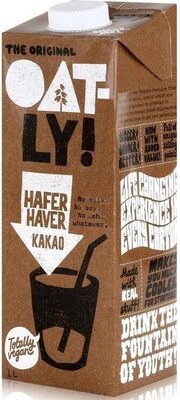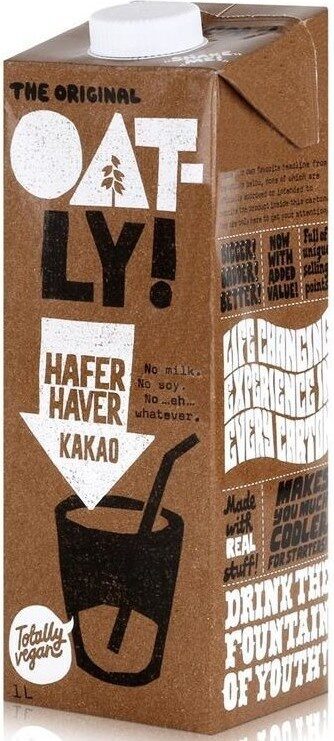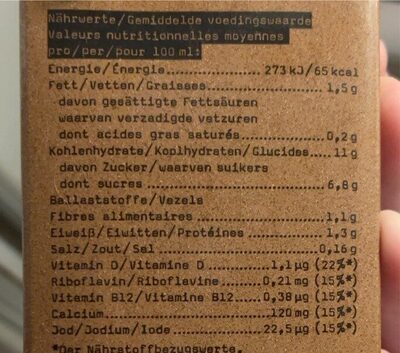Oatly Kakao - 1l
This product page is not complete. You can help to complete it by editing it and adding more data from the photos we have, or by taking more photos using the app for Android or iPhone/iPad. Thank you!
×
Barcode: 7394376616136 (EAN / EAN-13)
Common name: Haferdrink Kakao
Quantity: 1l
Packaging: Tetra Pak
Brands: Oatly
Categories: Plant-based foods and beverages, Beverages, Dairies, Plant-based foods, Cereals and potatoes, Dairy substitutes, Cereals and their products, Milk substitutes, Plant-based beverages, Milks, Plant-based milk alternatives, Cereal-based drinks, Oat-based drinks, Cocoa oat-based drinks
Labels, certifications, awards:
Carbon footprint, FSC, FSC Mix, Carbon footprint
Origin of ingredients: European Union
Manufacturing or processing places: oatly ab, malmö
Link to the product page on the official site of the producer: https://www.oatly.com
Stores: Albert Heijn, Rewe, Kaufland
Countries where sold: Germany
Matching with your preferences
Environment
Carbon footprint
Packaging
Transportation
Report a problem
Data sources
Product added on by kiliweb
Last edit of product page on by bartolomeu.
Product page also edited by aleene, date-limite-app, gigilano, grumpf, inf, jblond, jon45, lame, margot-gabel, marmotte73, moon-rabbit, off-replace-bot, openfoodfacts-contributors, packbot, planteuser, prepperapp, rotebete, sapiores, scanbot, sioul, stivolonski, tacite-mass-editor, tim1987, yuka.YjZJQk1Lc1FwLzBObmMwdjVrdUZ4ZTVvbXNlRERHT2RLTWNJSVE9PQ, yuka.sY2b0xO6T85zoF3NwEKvlhZIfYvsgTnDCkDUo1GHz-uHNcHwRchp4KXQM6s, yuka.sY2b0xO6T85zoF3NwEKvlmhBQsiCkB3vHAPjumiSmu2uMqyxRvcs2pOhbKs, yuka.sY2b0xO6T85zoF3NwEKvlnNrcd2EgBWaEyH5pBWT5MytILXXMettvLOnPKs.











